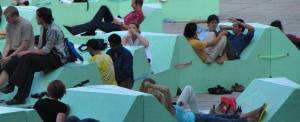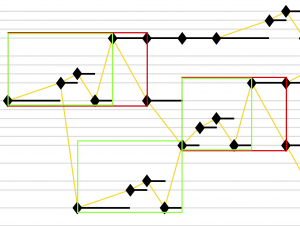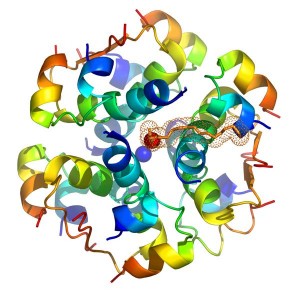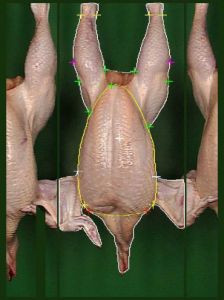Department of Architecture, Design and Media Technology, Aalborg University Copenhagen

Date: Wednesday 27 April 2016
Time: 12.45 – 14.00
Place: Rendsburggade 14, Room 3.329
Abstract
I. We present a system that learns the rhythmical structure of percussion sequences from an audio example in an unsupervised manner, providing a representation that can be used for the generation of stylistically similar and musically interesting variations. The procedure consists of segmentation and symbolization (feature extraction, clustering, sequence structure analysis, temporal alignment). In a top-down manner, an entropy-based regularity measure determines the number of clusters into which the samples are grouped. A variant of that system that adjusts the number of (timbre) clusters instantaneously to the audio input. A sequence learning algorithm adapts its structure to a dynamically changing clustering tree. The prediction of the entire system is evaluated using the adjusted Rand Index, yielding good results.
II. In a multi-streamed oddball experiment, we had participants shift selective attention to one out of three different instruments in music audio clips. Contrasting attended versus unattended instruments, ERP analysis shows subject- and instrument-specific responses including P300 and early auditory components. The attended instrument can be classified online with a mean accuracy of 91% across 11 participants. This is a proof of concept that attention paid to a particular instrument in polyphonic music can be inferred from ongoing EEG, a finding that is potentially relevant for both brain-computer interface and music research.
Bio
Hendrik Purwins is Assistant Professor at Audio Analysis Lab and Sound and Music Computing Group, Aalborg Universitet København, Denmark. He obtained his Ph.D. from Berlin Institute of Technology (EE/CS), with a scholarship from the ”Studienstiftung des deutschen Volkes”. He studied mathematics at Bonn and Münster University (diploma in pure mathematics). He has been lecturer at Universitat Pompeu Fabra, Barcelona, researcher at Berlin Brain Computer Interface, visiting scholar at IRCAM, Paris, CCRMA, Stanford, and McGill University, Montreal. He has written more than 70 scientific papers and has won 13 research grants/prizes. His interests comprise statistical, unsupervised models for machine listening, music generation, sound resynthesis, and failure prediction in semi-conductor manufacturing, and big data in e-health. Starting playing the violin at age of 7, he also studied music at Cologne Music Academy, Münster University and Berlin University of the Arts.





